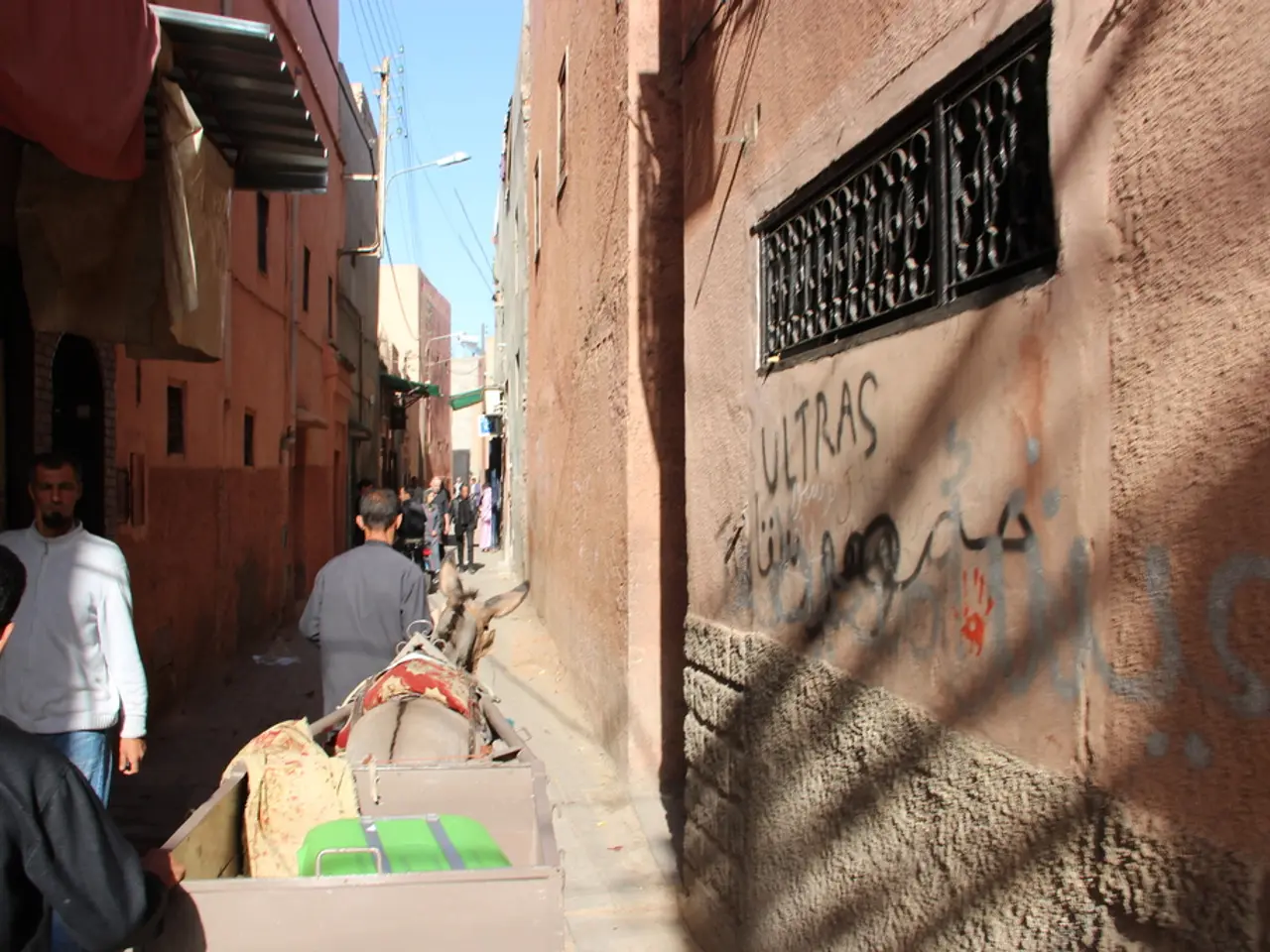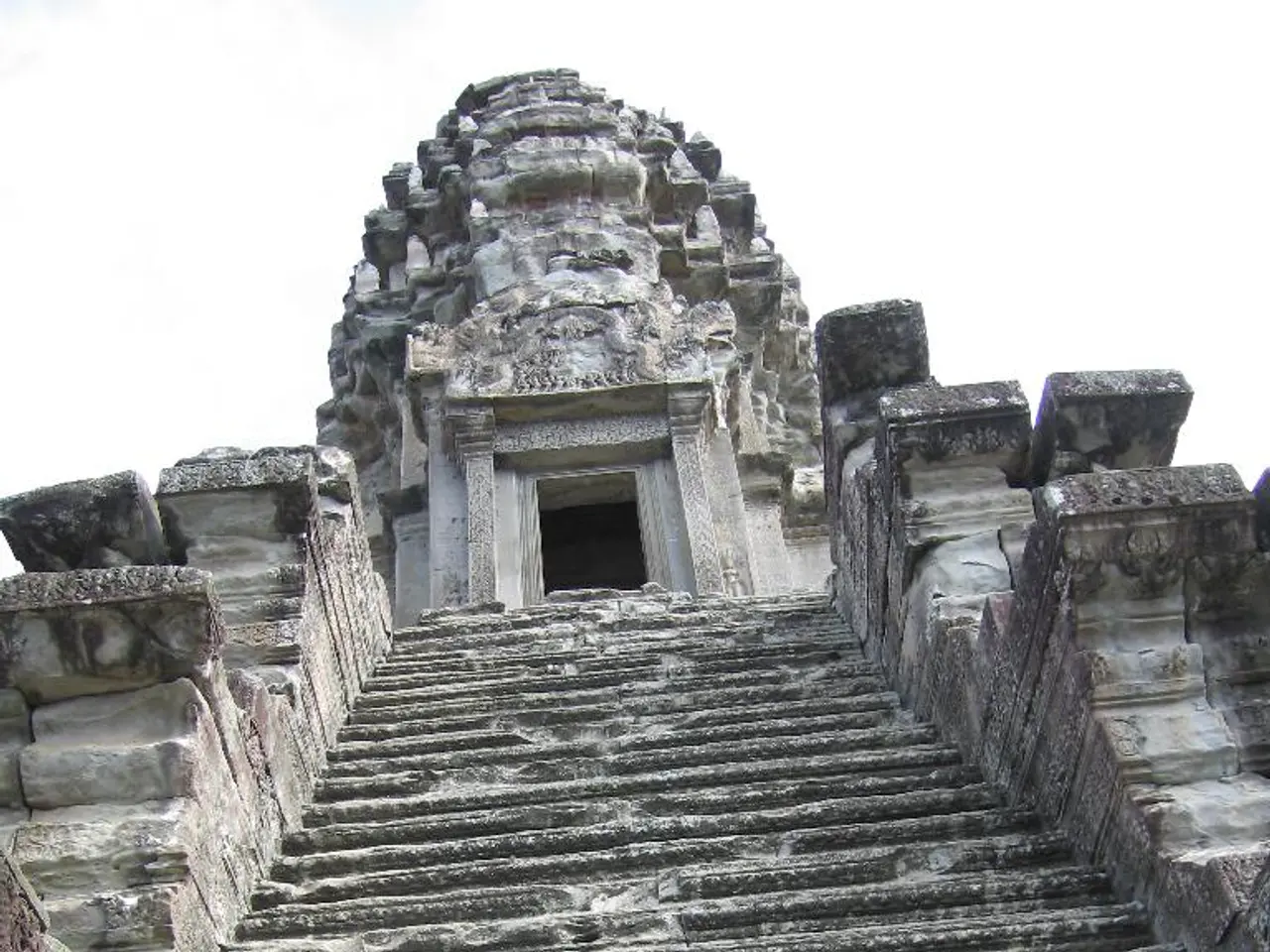Shinawatra family and Pheu Thai faction suffer significant losses in Cambodia's power struggle
The political and military landscape in Southeast Asia is marked by a tense and complex standoff between the government of Prime Minister Paetongtarn Shinawatra, the Pheu Thai Party in Thailand, and Cambodia. This situation, marred by an intense border conflict, has been unfolding since July 2025, following deadly clashes along the contested border.
The conflict reached a boiling point on July 24, with both nations engaging in fierce battles, particularly near temple complexes like Prasat Ta Muen Thom and Preah Vihear. Thai forces retaliated with airstrikes against Cambodian military positions after enduring artillery and rocket attacks on Thai border areas. The hostilities led to civilian casualties and displacement on both sides, prompting the declaration of martial law in several Thai border districts.
The Shinawatra clan, led by Thaksin Shinawatra, former Prime Minister and a close ally of the Pheu Thai Party, played a provocative role in the escalation. Thaksin publicly urged the Thai military to "teach Hun Sen a lesson," directly calling out Cambodia’s long-standing leader and intensifying hostilities. Hun Sen responded by accusing Thaksin of betrayal and inflaming nationalist tensions, thereby fuelling the conflict's volatility through personal and political animosity.
This familial rivalry has exacerbated the already deep historic distrust due to colonial-era border disputes dating back to 1907 and longstanding nationalist sentiments on both sides. The conflict reflects not merely a military confrontation but political instrumentalization of nationalist fervour, with the Pheu Thai Party’s ties to the Shinawatra family impacting Thailand’s posture.
Strategically, Thailand holds a significant military advantage over Cambodia. Thailand’s larger, better-equipped, and more modern military contrasts with Cambodia’s smaller, less-equipped forces. Despite Cambodia’s accusations of Thai ceasefire violations, the military imbalance is clear and crucial in conflict dynamics. However, the conflict has also exposed strategic missteps, such as Thailand’s inability to contain escalation despite military superiority, and loss of credibility due to civilian casualties from airstrikes and destruction in border communities.
The Pheu Thai-led government has shown little strategic foresight since tensions began to escalate in late 2024. Paetongtarn and her father, Thaksin Shinawatra, miscalculated badly, largely due to their unwavering trust in Hun Sen. This trust has led to a series of miscalculations, contributing to the current volatile situation.
Despite the military setbacks, Cambodian troops have suffered notable defeats across several fronts, particularly in the Phu Makua area, where they had previously established military outposts and transport cable systems. The Thai-Cambodian border ceasefire was secured after midnight on July 29, 2025, following talks between Acting Prime Minister Phumtham Wechayachai and Cambodian counterpart Hun Manet. However, the situation remains tense, with key border positions previously occupied or infiltrated by Cambodian troops now being vacated following resistance from Thai forces.
In summary, the ongoing Thailand-Cambodia border war in 2025 entangles the Shinawatra clan and the Pheu Thai Party in a politically charged dispute that worsens strategic miscalculations, causes military setbacks on both sides, and leads to a significant loss of trust and credibility regionally and internationally. Ethnic nationalism and personal rivalries compound a long-standing territorial dispute, undermining diplomatic resolutions despite international mediation efforts.
- The escalating border conflict between Thailand and Cambodia, marked by military clashes and political animosity, has brought international attention, affecting general-news headlines worldwide.
- The Shinawatra family's involvement in the conflict, through their ties to the Pheu Thai Party and heated verbal exchanges, has added fuel to the fire and expanded the scope of war-and-conflicts coverage.
- With political and military tensions running high, the ongoing situation has created uncertainties in various spheres, altering the business climate and potentially impacting trade relations between the two countries and beyond.
- The repercussions of the Thailand-Cambodia border war extend to policy-and-legislation changes, as global powers consider their stances on the matter, with implications for regional alliances and international relations in the sports, transport, and crime-and-justice sectors as well.








